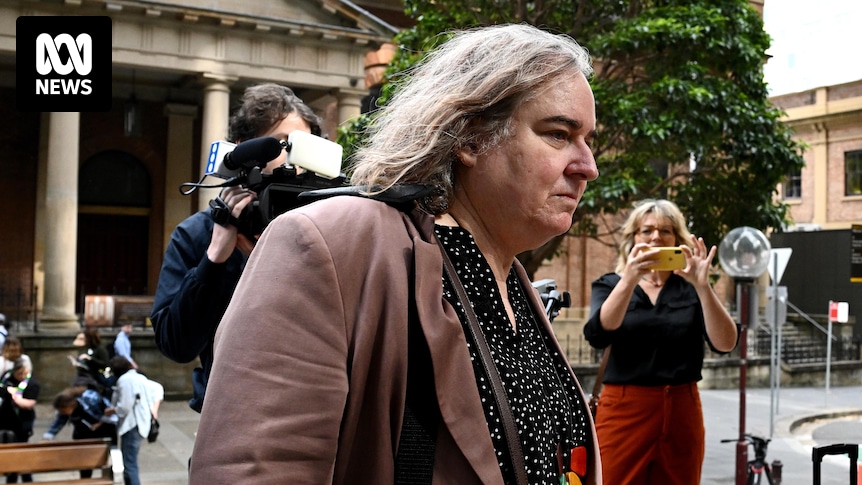- In short: Transgender woman Roxanne Tickle is suing social media platform Giggle for Girls after she was excluded from the women-only app.
- She is alleging unlawful discrimination on the basis of gender identity while the app’s founder has denied she is a woman.
- What’s next? The hearing is expected to run for four days.
A transgender woman who was excluded from a women-only social media app should be awarded damages because the app’s founder has persistently denied she is a woman, a Sydney court has heard.
In February 2021, Roxanne Tickle downloaded the Giggle for Girls social networking app, which was marketed as a platform exclusively for women to share experiences and speak freely.
Users needed to provide a selfie, which was assessed by artificial intelligence software to determine if they were a woman or man.
Ms Tickle’s photograph was determined to be a woman and she used the app’s full features until September that year, when the account became restricted because the AI decision was manually overridden.



Fair enough. Just making a prediction. It’s a weird subject imo like, can you make a black only site? Can you make a white only site? Kind of the same territory, you know?
If you’re a private entity and there is a specific reason that having non-black people in the group would be detrimental to the purpose of the group, yes, in Australia you can make a black only space.
For example, if you want to create a support group for POC to discuss trauma around being subjected to racism, to ensure you create a safe space, making the space POC only is not only legal, but often the more ethical choice for this group.
Want to create a social and dating app for queer women to meet other queer women? What purpose would it serve to let straight people into that group?
There is difference between public spaces, that must allow access and entry to all, and a private organisation that caters to specific demographics, and being freely open would completely defeat the purpose of the private organisations goals.
I’m not an alcoholic, I don’t personally know anyone who has struggled with alcoholism. Why can’t I go to an AA meeting to talk about my feelings on alcoholism? Obviously, Because that’s not helpful, it has the potential to be harmful to the people who attend because they have lived experiences with alcoholism. I could argue I’m being discriminated against because of my medical history, but I’m not being discriminated against, I’m just not being catered to, because I don’t have an unmet need in this specific situation.
Good example. Now what if someone identifies as a POC? Example
Again, it depends on the purpose of the group you’re creating, does this person in question face discrimination for their perceived race? Then a support group for people who have faced discrimination for their race may be the right place for them, assuming the intersection of having “chosen” to present as a race they’re not doesn’t create an unsafe space for the other group participants.
However if your group is for people who have grown up POC or been raised in a non-dominant cultural group to discuss shared experiences, then obviously someone who identifies as POC later in life would not be served by that group, so would not be eligibile to join that group.
There are circumstances when even if you fit the criteria of the group, you may still be excluded due to the way various identities and experiences intersect, or because your personal actions are not serving the group.
It’s not discrimination to be told you can’t use a private service because the service can’t serve your specific needs, and your personal circumstances reduce the groups ability to serve its other members.
Here is an alternative Piped link(s):
Example
Piped is a privacy-respecting open-source alternative frontend to YouTube.
I’m open-source; check me out at GitHub.